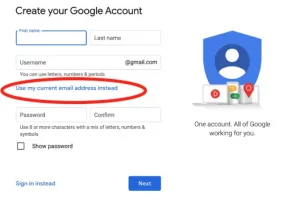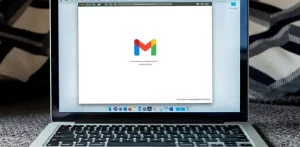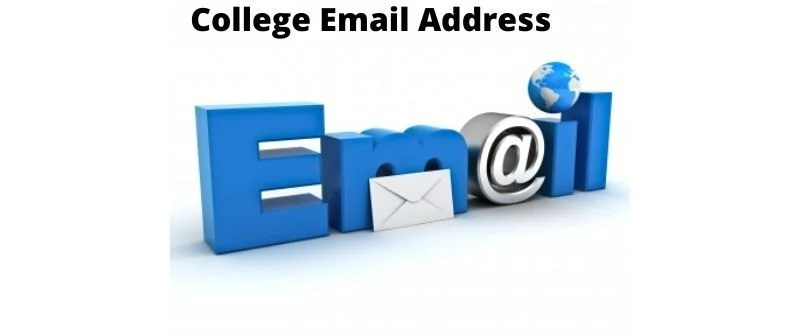As a college student, you have to own a college email address. It is the only way to receive critical information from your professors and the financial aid office. It is also the easiest way for your friends and family to reach you. Read on.
Importance of College Email Address
College students use their college email addresses for a variety of reasons.
1. To communicate with Professors
Many colleges have online portals that allow students to access course materials and assignments via the Internet. These portals are often accessible through a student’s college email address.
Your professors will use it to send out assignments and notices about upcoming quizzes and tests. Such makes it easy for professors to send out forthcoming projects and test announcements. On the same platform, you efficiently and effectively email your professor.
2. Organize Schoolwork
Suppose you’re using a computer lab at your school or another location where there are multiple people taking advantage of the same computers.
It may be difficult to remember who is working on what project or what information belongs to whom.
A college email address can help organize all this information by letting you create folders or subfolders within your email account that everyone involved in the project can access when they need those most.

You will also send messages back and forth between yourself and other participants without worrying about losing important information because someone else might have deleted it accidentally.
3. Networking and Job Application
College email addresses are also helpful for job applications and networking.
Most employers ask for an applicant’s school email address when they apply for jobs on a company website or other online application.
In addition, some companies will send information directly to the student’s college account rather than their one.
How to get a College Email Address
Here are some things to consider before signing up for a college email address:
1. Password Management
College emails often require a password and sometimes limit the length of passwords. Please remember your password or have it written down somewhere safe.

2. Spam Filters
Spam filters on college servers can be very aggressive, so be careful when sending attachments or links in your messages.
You may not see these emails until they’ve been delivered to your account and passed through the spam filter.
If you’re unsure whether the college’s server has blocked something, check with your school’s IT department.
3. Privacy Concerns
Your school may have a policy that limits how much personal information you can access through your account — and it could also monitor what you send through that account, including messages sent between classmates (which could violate FERPA).
So make sure you know what kind of information is allowed before using your school’s email system for personal correspondence rather than official business — especially if it involves sensitive financial data like credit card numbers or social security numbers. Get a College Email Address.
Getting College Email Address with .edu or .ac
Getting a .edu email address is a great way to show off your school spirit. If you’re in college, you may get an official email address from your school. If not, there are still ways to get a free email address that looks professional and is easy to remember.
First, check if your university offers an official email address. Sign up for it right away when you register for classes or move in. The sooner, the better because only current students will be allowed to use these addresses.
If your school doesn’t offer official email addresses, don’t despair! There are plenty of free email services that will give you a .edu-looking address without asking for proof of enrollment.
Why do Colleges give out .edu Addresses?
Colleges give out .edu addresses because they want their students to communicate with each other easily without having to use another service like Gmail or Hotmail. They also want them to be able to access university resources without having to log in through another website like Google Apps for Business or Office 365.
Why do Colleges give out .ac Addresses?
Universities and colleges worldwide use .ac addresses to give their students and staff a private network for email and other services. They want to provide their students with an address that’s easy to remember but isn’t associated with any one university or organization.
In addition, they can keep their domains separate from their student body. If you have any problems with your .ac address, it won’t affect your domain or email address.
Precautions for Using College Email Address
It is essential to follow these precautions when using a college email address:

- Don’t click on links in emails that come from unknown senders. Hackers will use the names of your friends and family to trick you into clicking on links that could infect computers with viruses or spyware.
- Don’t open attachments in emails from people you don’t know. Attachments can contain viruses that can infect your computer, so it’s best to delete suspicious attachments without opening them.
- Use anti-virus software and keep it up to date. You should also run security scans regularly on your computer to ensure no viruses or spyware are on it.
- Never give out your password or other identifying information such as Social Security numbers or birth dates in an email.
- Don’t send sensitive information through email. If someone gets access to your account and sees something embarrassing or confidential, they could use it against you later on.
Tips when Getting an Official College Email Address
- Check with your college first. Some schools offer free email accounts as part of their tuition packages, while others charge for them. If yours does charge for an account, there’s no need to pay for it — ask your parents if they can help.
- Be ready to provide personal information, such as your name and birthday (this can be fake). You may also be asked for proof that you’re a student at the school, so be sure to bring your student ID or another form of identification.
- Have your computer or smartphone handy so that they can set up an account on it (if necessary). It is vital if you don’t have access to one of the schools computers or want more control over how many devices are using up its bandwidth at any given time.

Joseph is a freelance journalist and a part-time writer with a particular interest in the gig economy. He writes about schooling, college life, and changing trends in education. When not writing, Joseph is hiking or playing chess.
